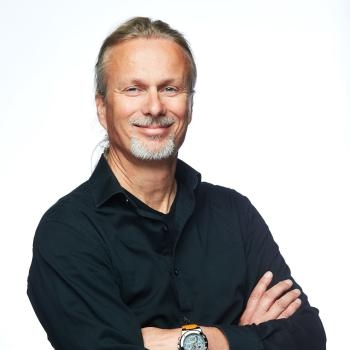Planetary Health: Finding Our Place on a Changing Planet
–
Online
Free
Open to the Public

Planetary Health: Finding Our Place on a Changing Planet
Speaker: Dr. Giulio De Leo, Professor of Biology and Population Dynamics, Stanford Woods Institute for the Environment
Tuesday, December 13, 2022
6:00pm to 7:00pm Pacific Time
Online via Zoom (details below)
About the Speaker
Dr. De Leo is a Professor of Biology and Senior Fellow of the Woods Institute for the Environment at Stanford University. He is a theoretical ecologist, based at the Hopkins Marine Station of Stanford University in the Monterey bay, with a strong interest in Planetary Health. His lab investigates factors and processes driving the dynamics of natural and harvested population and explores how to use ecological knowledge to inform practical management. Dr. De Leo launched and co-directs with Dr. Susanne Sokolow the Stanford Program for Disease Ecology, Health and the Environment.
“I am a theoretical ecologist by formation, I am generally interested in investigating factors and processes driving the dynamics of natural and harvested populations and in understanding how to use this knowledge to inform practical management.
In recent years I have been particularly interested in investigating factors and processes that provide resilience of natural or managed population to natural and anthropogenic stressors, environmental shocks and climate change. I study resilience from two very different points of view: on the one hand, I have focused my attention on populations that prove to be resilient despite our effort to control or eradicate them, namely parasitic and infectious diseases. On the other hand, I have been working extensively to understand how to increase resilience of population of commercial or conservation interest to extensive harvesting, environmental shocks, climate change and land use change.
I have been working on a number of theoretical and applied problems ranging from the conservation of the European eel to the sustainable management of the abalone fishery in Baja California in the face of climate change, the biocontrol of schistososmiasis in west Africa and the relationship between resource exploitation, infectious diseases and poverty traps.
In the last five years, I focused most of my effort on building the Program for Disease Ecology Health and the Environment as a pillar of Human and Planetary Health at Stanford University, with the ultimate goal of discovering novel ecological solutions that can improve human wellbeing and the health of the environment that underpins it.”
Recommended Reading
- De Leo Lab
- The Upstream Alliance
- Stanford Woods Institute, Program for Disease, Ecology, Health & Environment
Zoom Link to Join
https://middlebury.zoom.us/j/91351225266?pwd=NFdyQVRJcWlOSXAwN043V3BoL000dz09
Password: HappyOcean
Meeting ID: 913 5122 5266
Or iPhone one-tap :
US: +16694449171„91351225266# or +16699006833„91351225266#
Or Telephone:
Dial(for higher quality, dial a number based on your current location):
US: +1 669 444 9171 or +1 669 900 6833 or +1 253 215 8782 or +1 346 248 7799 or +1 301 715 8592 or +1 312 626 6799 or +1 386 347 5053 or +1 564 217 2000 or +1 646 876 9923 or +1 646 931 3860
Phone Password: 7362729534 (no participant ID, press # to bypass)
International numbers available: https://middlebury.zoom.us/u/aezDx4SoHL
Questions
The Center for the Blue Economy is a research organization at the Middlebury Institute of International Studies. Our mission is to promote a sustainable ocean and coastal economy (the “Blue Economy”) through leadership in research, analysis, and education. For questions contact: Rachel C. at cbe@middlebury.edu or visit centerfortheblueeconomy.org or call 831-647-4183 (must leave message and receive call back).
- Related URL:
- https://deleolab.stanford.edu/
